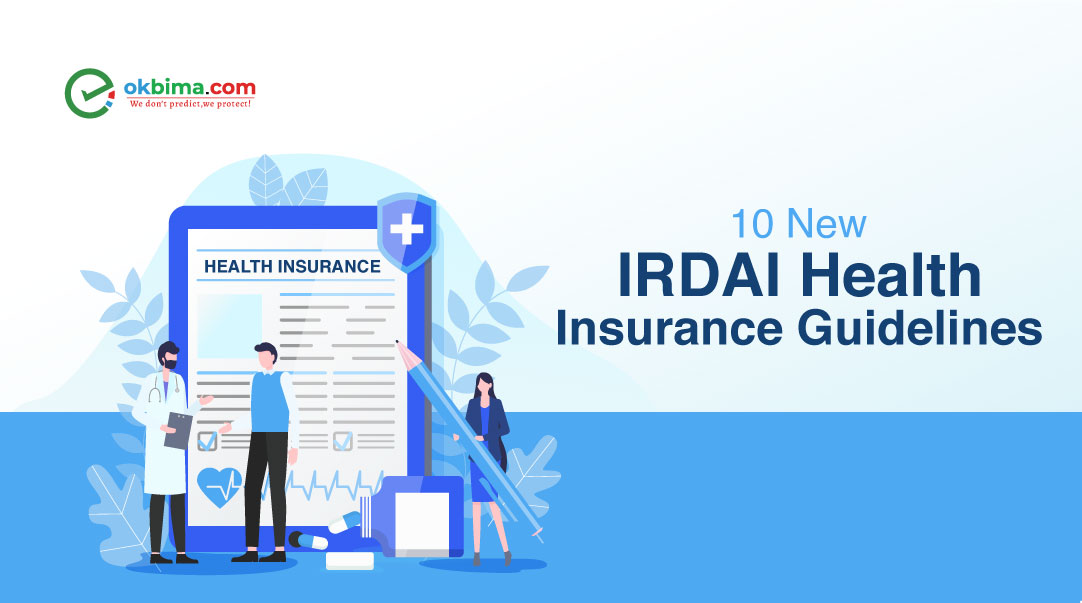

IRDAI health insurance guidelines are making coverage in India more accessible than ever, thanks to recent updates by the Insurance Regulatory and Development Authority of India (IRDAI). Many people hesitate to buy health insurance due to confusion around coverage details. To address this, IRDAI has introduced new 2024 guidelines aimed at making health insurance more inclusive, transparent, and suitable for diverse backgrounds and health conditions. Let’s explore these updated IRDAI health insurance guidelines and how they reshape health coverage in India.
The Insurance Regulatory and Development Authority of India (IRDAI) was established to regulate and promote the insurance industry in India. Founded as a statutory body in 2000, IRDAI works to ensure fair competition, transparency, and protection of policyholders’ interests. It sets standards and policies that govern insurance providers and periodically updates these to reflect emerging trends and technological advancements. As the insurance industry evolves, IRDAI’s guidelines help protect consumers and improve the quality and accessibility of insurance products across the country.
To make health insurance inclusive for all, IRDAI has removed the age restriction for buying health insurance. Previously, many policies had a maximum entry age of 65, excluding older adults from purchasing coverage. With this change, people of all ages can now get insured, making it particularly beneficial for senior citizens who need coverage in their later years.
One of the significant updates is the reduction in the waiting period for pre-existing diseases (PED) from 4 years to 3 years. This shorter waiting period enables policyholders to claim expenses related to existing health conditions such as diabetes, hypertension, and asthma sooner, allowing for quicker financial support for essential treatments.
IRDAI has also reduced the waiting period for specific treatments and procedures, such as joint replacement surgery, from 4 years to 3 years. With this change, individuals facing these conditions will have faster access to claim coverage, giving them more security and support.
Insurance companies often denied coverage to individuals with severe medical conditions, leaving them without support when they needed it most. Under the new rules, insurers can no longer refuse policies for individuals with serious illnesses like cancer, heart disease, renal failure, or AIDS. This move makes health insurance more inclusive and beneficial for those with critical health concerns.
In a move to support alternative treatments, IRDAI has eliminated sub-limits on AYUSH (Ayurveda, Yoga, Naturopathy, Siddha, Unani, and Homeopathy) treatments. Policyholders can now claim expenses for AYUSH treatments up to the sum insured, making these treatments more accessible and affordable.
The IRDAI has directed insurers to create policies specifically designed for specialised groups, such as senior citizens, children, and maternity cases. This mandate encourages insurance providers to develop targeted solutions that better address the needs of these groups, offering a range of benefits that make policies more relevant and attractive.
Recognising the needs of senior citizens, IRDAI has required insurers to set up dedicated support channels to handle their claims and complaints. This provides older adults with better assistance, ensuring their claims and concerns are handled promptly and effectively.
The moratorium period—the period during which insurers can deny claims due to non-disclosure or interpretation issues—has been reduced from 8 years to 5 years. After maintaining continuous coverage for 5 years, insurers cannot deny claims based on non-disclosure of pre-existing conditions unless fraud is involved. This change provides policyholders with more security and confidence in their coverage.
To make claims simpler and easier, IRDAI has directed insurers to issue only benefit-based policies for hospitalisation. Instead of reimbursing policyholders based on their expenses, benefit-based policies offer a fixed sum upon diagnosis. This reduces administrative complexities and ensures quicker payouts for policyholders when they need them.
For those holding benefit-based policies, IRDAI has now made it possible to file multiple claims across different insurers. This guideline gives policyholders greater flexibility and support, as they can claim benefits from multiple insurers in case of severe medical issues, enhancing their overall coverage.
When evaluating best health insurance plan, it’s important to consider the new IRDAI health insurance guidelines to find a plan that meets your needs. Here are some tips:
Comprehensive Coverage: Look for plans offering full coverage without limitations on treatments, including AYUSH therapies.
Age Flexibility: Given that age restrictions have been removed, this is an opportune time for senior citizens to consider new or additional coverage.
Pre-existing Condition Coverage: With reduced waiting periods, check that your plan covers necessary treatments for any pre-existing conditions you may have.
Customised Plans: Opt for policies tailored for your specific group, such as senior citizens or children, for benefits that directly match your needs.
The latest IRDAI guidelines for health insurance are aimed at creating a more inclusive health insurance environment that provides flexible options for people of all ages and health statuses. These changes focus on reducing waiting periods, increasing coverage for alternative treatments, and supporting those with severe medical conditions, which ultimately makes health insurance a more appealing and reliable choice. By implementing these consumer-focused guidelines, IRDAI aims to drive greater insurance penetration in India, making it easier and more affordable for individuals and families to access essential healthcare support.
These guidelines mark a new era in India’s health insurance industry, where insurance is more accessible and transparent. Whether you’re a young individual seeking an affordable plan, a senior citizen looking for comprehensive coverage, or someone with a pre-existing condition, the 2024 IRDAI guidelines ensure that there is an insurance policy tailored for you.